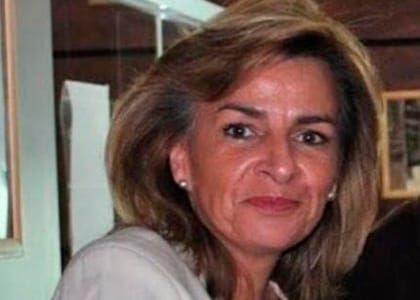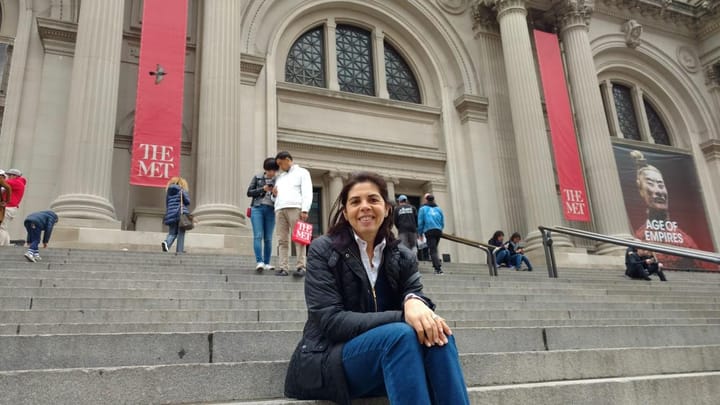
Por Claudia Pérez Atamoros
“Peligra mi vida. Si algo me pasa, investiguen”, decía el preocupante telegrama recibido la noche del 5 de junio de 1949 en la redacción de Excélsior, enviado por la reportera y escritora Concha de Villarreal desde Tuxtla Gutiérrez, Chiapas a donde había llegado un par de días antes para seguir la huella de la corrupción que los hermanos Pedrero, en contubernio con las autoridades del estado, realizaban para convertirse en dueños y señores de la explotación y comercialización del Pox. Un monopolio que con los años se volvió poderoso y que explotó a los indígenas y campesinos de una manera más que inhumana. (Entre 1948 y 1954, crearon la sociedad de Aguardientes de Chiapas y Plantaciones Agrícolas Intensivas, la primera con sede en Comitán y la segunda en Pujiltic.
Y estos fueron los encabezados de entonces…
LA PERIODISTA CONCHA DE VILLARREAL ESTÁ GRAVE
EL UNIVERSAL, 6 DE JUNIO DE 1949
“HAY MAR DE FONDO, NO SE PUEDE UNO MEZCLAR EN ASUNTOS POLÍTICOS”: CONCHA DE VILLARREAL, EN MEDIO DE SU GRAVEDAD.
EXCÉLSIOR, 7 DE JUNIO DE 1949
SIEMPRE QUE LLEGA A TUXTLA UN PERIODISTA, VIENE A VISITARME. LA SEÑORA DE VILLARREAL, NO LO HIZO, GENERAL FRANCISCO J. GRAJALES
(GOBERNADOR)
EXCÉLSIOR, 8 DE JUNIO DE 1949
Aquel evento que la mantuvo al borde de la muerte durante una semana en tierras chiapanecas y hospitalizada por más de un mes en la Ciudad de México no acabó con su vida, pero si trastocó para siempre su seguridad, su entorno, su relación matrimonial -que terminaría 5 años más tarde- y su paz mental…
Ese reportaje nunca vio la luz, pero el evento marcó a Concha de Villarreal como la primera periodista mexicana en sufrir un intento de asesinato en el siglo XX, conclusión a la que llego luego de no encontrar ninguna alusión anterior a un hecho similar y otorgándole a Concha la credibilidad sobre el atentado sufrido.
Ellas, esas periodistas de los años 30 y 40 caminaban sobre empedrado, porque ya otras habían abierto la brecha y quitado la maleza, pero aún faltaba poder andar parejito… Todavía hoy apenas es carretera y está llena de baches… y falta bastante para convertirla en autopista. Y para lograrlo hemos de ejercitar la memoria y tenerlas presentes. Conocer sus historias y solidarizarnos con ellas.
Para muchos, el atentado no fue tal y sí en cambio, un intento de suicidio y, por tanto, la estigmatizaron y acabaron con su prestigio profesional. La acusaron de haberse aventado del segundo piso del hotel, de haberlo planeado todo y la señalaron como una loca lo que provocó que los jerarcas de las empresas periodísticas la ningunearan y dejaran de comprarle sus reportajes orillándola a una situación económica precaria. Ella siempre sostuvo que fue empujada y que todas sus notas desaparecieron tras el incidente.
La periodista, la noche anterior no solo mandó el telegrama a Excélsior, envió otro a la presidencia de la república y a varios amigos y colegas, y también pidió refugio y protección al párroco de la localidad quien no la hospedó y la remitió al hotel Jardín, cuya dueña era de “su absoluta confianza”. Ella dijo sentirse amenazada y seguida por dos individuos.
Al día siguiente el padre mandó mensaje al director del periódico y entre otras cosas informaba que “la periodista se internó en el hotel y subió a la azotea para arrojarse…Al cumplir con el penoso encargo de informar a Usted lo sucedido, sírvase aceptar mis condolencias, –el padrecito la dio por muerta- lo mismo que sus estimables colegas de Excélsior, por esta tragedia tan lamentable: Rufino Torres Gómez, párroco. Templo Parroquial.
En el hospital confesaría a su marido Anastasio de Villarreal que “alguien” con quien se había entrevistado el día anterior le dio una copa de comiteco, la bebida regional. El esposo luego manifestaría que temía que su esposa hubiera sido “víctima de un brebaje enloquecedor”.
Las versiones circulantes decían que había padecido una crisis nerviosa, que tenía delirio de persecución… pero en ningún informe médico apareció tal condición. El reporte final del Hospital ABC capitalino tampoco consignó ningún dato al respecto y solo se informó que el doctor Guillermo Velasco la tenía sometida a un tratamiento para conciliar el sueño.
Hasta aquel fatídico suceso, Concha de Villarreal nunca manifestó ningún rasgo de enfermedad psiquiátrica. Nunca. Al contrario, a decir de sus colegas, siempre se condujo con valentía y honestidad y realizaba su labor periodística con excepcional sensatez e impecable entereza en pro de la verdad; cualidades y talentos “incompatibles con el más elemental temor” y con su muy conocida templanza.
Finalmente, el 27 de marzo de 1956, 6 años y nueve meses después de aquel hecho, Concepción de la Luz Noriega González, Concha de Villarreal, perdió la vida a la edad de 50 años. Murió lejos de su patria, del país que, de pie, aplaudió sus reportajes y premió sus novelas. La tierra que la vio nacer, amar, casi morir y perder su prestigio como reportera...
Falleció en Caracas, capital de Venezuela, en el Hospital Psiquiátrico víctima de una bronconeumonía. Su cuerpo fue exhumado y traído a México gracias a la sororidad de sus amigas periodistas Helia D´Acosta, Chelina Galindo, Isabel Farfán y Edelmira Zúñiga.
Un misterio sigue siendo cómo fue a dar al psiquiátrico de Caracas; había emigrado a aquel país unos meses antes. Unos dicen que fue tras la pista de un reportaje, otras que se fue a refugiar allá, en donde, por fin, la mataron. Lo cierto es que Concha de Villarreal nunca volvió a ser la misma tras superar la gravedad de lo sucedido en Chiapas. A sus amigas periodistas decía que no se sentía segura en ningún lugar y un buen día abandonó su departamento en la colonia Anáhuac y desapareció solo para aparecer muerta en otro país.
Concha de Villarreal dedicó su pluma al periodismo social y cuando se alejó de éste, tras el atentado, siguió preocupada por los campesinos e indígenas de nuestro país. Compiló en Las encantadas sus reportajes de índole “feminista”, en México busca un hombre retrató al país del sexenio cardenista envuelto en un sinsentido entre Ávila Camacho y Almazán…se dedicó casi de lleno a escribir novelas, y redactó su columna De interés para las damas.
En 1953 -4 años después de su atentado-, ganó el premio Lanz Duret, patrocinado por El Universal, con la novela Tierra de Dios y lo volvería a ganar tres años después de su fallecimiento con la obra Desierto Mágico (1959)*, trabajo que envió a su editor -ocho días antes de que en México se conociera de su fallecimiento- con la siguiente nota. “Mi querido amigo: le envío el original de mi novela sobre los ixtleros. Publíquela cuando pueda, y el dinero que me corresponda, si vivo para entonces, ya le avisaré a dónde me lo manda”.
Nunca ocupó de manera formal parte de ningún medio, siempre gustó de trabajar por su cuenta. En el Excélsior ella vivió sus mejores años codeándose con aquella llamada redacción negra integrada por Carlos Denegri, Luis Spota… razón por la cual el medio cubrió todos sus gastos hospitalarios tras el atentado-intento de suicidio.
Sus restos fueron exhumados y traídos a la Ciudad de México y enterrados en el Panteón Jardín, nótese la ironía en Jardín, nombre del hotel que marcó su vida y del cementerio que la acogió.
Concepción de la Luz Noriega Gonzáles nació el 25 de abril de 1906 (acta en mi poder) en Gómez Palacio, Durango. Hija de Manuel Noriega y Leonor González. Se casó en 1923 en Coahuila con Anastasio Villarreal. Sus estudios de primaria y secundaria los realizó en escuelas religiosas y estudió en la Normal para maestros de Coahuila.
Ejerció como maestra rural en su estado natal. Comenzó en el periodismo en 1930 en El Siglo de Torreón. Trabajó en la editorial Alrededor de América. Encabezó la revista El Niño en la capital del país. Fundó el diario campesino El Correo de la Revolución. Fue reportera de las revistas Orbe, Todo, Sucesos para todos, El Economista, Revista de Revistas y del diario Excélsior. Participó activamente en campañas sociales en beneficio de los campesinos del país, de la mujer y de los niños desamparados.
En sus reportajes prevaleció siempre su posición reaccionaria y de denuncia ante las injusticias e ineficiencia de las autoridades. Lo hacía con un manejo singular de la ironía que dejaba al descubierto también su clara intención de permear e incidir en la opinión pública. Mientras otras diaristas de su generación “peleaban” las ocho columnas con entrevistas a políticos de moda, ella navegaba en la cotidianidad nacional y reflejaba todos y cada uno de los problemas que aquejaban al país.
A mediados de 1938, por ejemplo, escribió: “En esta ciudad existen tal cantidad de vagos, enemigos irreconciliables del trabajo, de esos que lo buscan rogando a Dios no encontrarlo, que, si se resolvieran sindicalizarse, formarían la central más numerosa de cuantas existen en la República. La CTM les vendría floja, la CROM muy guanga, la CGT muy holgada, y la FROC demasiado amplia.”
Denunció la existencia de dos organizaciones llamadas la Alianza de Menesterosos Mexicanos y la Liga Socialista de Mendigos. Insistiendo en que “la profesión de mendigo era la más lucrativa de México”. El "Chojo”, uno de los líderes, me ha dicho: “con esto de la carestía de la vida amenazan dejarnos “sin trabajo” los que no se quieren afiliar a nuestro sindicato…”
Todos los ruidos son mudos; el silencio inmenso; las voces que cantan… ¡Sordas!, Concha de Villarreal.

*El premio post mortem (cuatro mil pesos en efectivo) por esta novela fue reclamado en 1961 por quien se dijo su hermana Leonor Noriega, “única y legal heredera”.
Las opiniones expresadas son responsabilidad de sus autoras y son absolutamente independientes a la postura y línea editorial de Opinión 51.






Comments ()